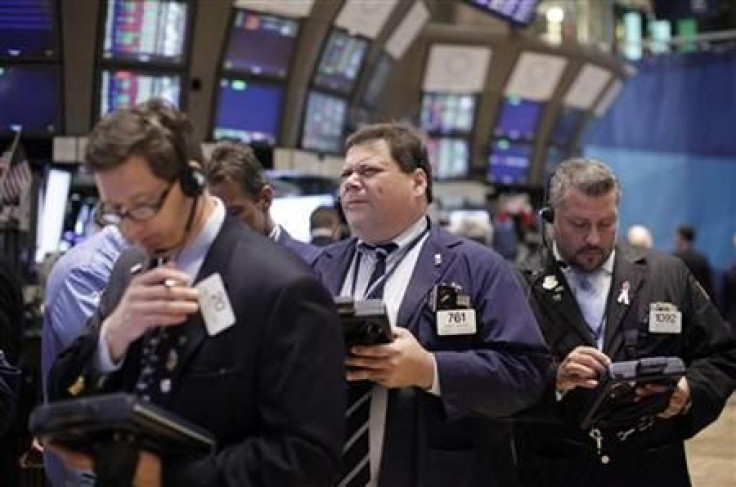Wall Street Closes Down on Eurozone Downgrades

Wall Street clearly cares about the European debt crisis and Friday's session proved it once again.
U.S. stocks closed slightly down, despite trading higher earlier in the session on a bullish September jobs report, because Fitch downgraded Italy and Spain.
The S&P 500 Index fell 9.51 points, or 0.82 percent, to end at 1,155.46. The Dow Jones Industrial Average dropped 20.21 points, or 0.18 percent, to close at 11,103.12. The Nasdaq Composite fell 1.10 percent.
At 8:30 a.m. ET, the Bureau of Labor Statistics (BLS) released the September non-farm payroll report, which came in better than expected at a gain of 107,000. It initially sparked a sizable jump in U.S. stock futures.
However, investor optimism waned later in the morning session because monthly gains of 107,000 are still not enough to meaningfully lower the U.S. unemployment rate.
Bottom line, 119k jobs per month have been created in 2011 on average, well below the 150-200k jobs that is needed to firmly lower the unemployment rate and eat into all the jobs lost in this recession, wrote Peter Boockvar, equity strategist at Miller Tabak, in a research note.
Later in the session, U.S. stocks and the euro pared their gains after Fitch Ratings downgraded the debt of Spain and Italy.
The downgrade reflects the intensification of the Euro zone crisis that constitutes a significant financial and economic shock which has weakened Italy's sovereign risk profile... The high level of public debt and fiscal financing requirement along with the low rate of potential growth rendered Italy especially vulnerable to such an external shock, stated Fitch, regarding its Italy downgrade.
Italy and Spain are the third and fourth largest economies, respectively, in the Eurozone. Should their sovereign debts plunge and their banking system falter, core Europe may not be able to bail them out as easily as they bailed out Greece, Portugal, and Ireland.
During this week, U.S. stocks and other global risk assets largely moved on news out of the Eurozone. Late Tuesday, they rallied on news that Eurozone authorities are reportedly looking into ways to recapitalize European banks. On Thursday, risk assets climbed on the European Central Bank's decision to re-introduce two liquidity measures that will ease financial conditions in Europe.
© Copyright IBTimes 2024. All rights reserved.











